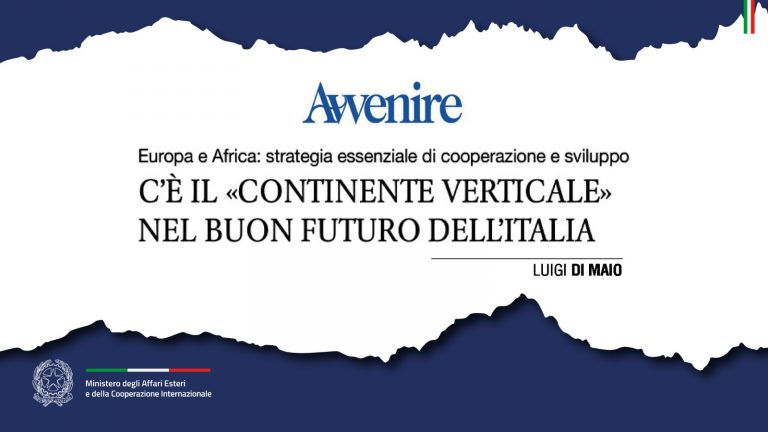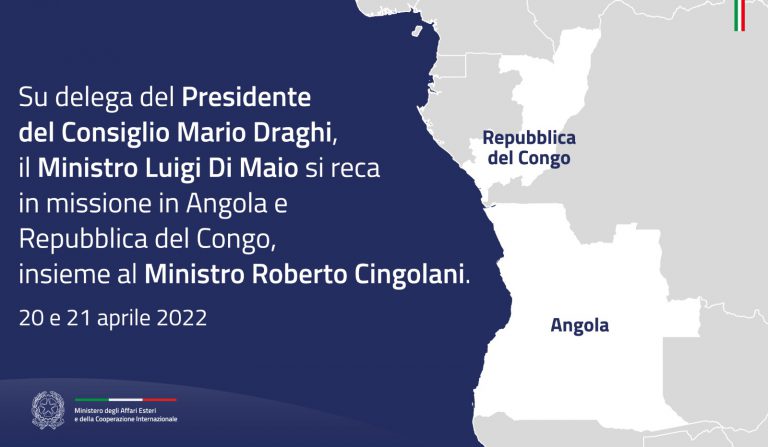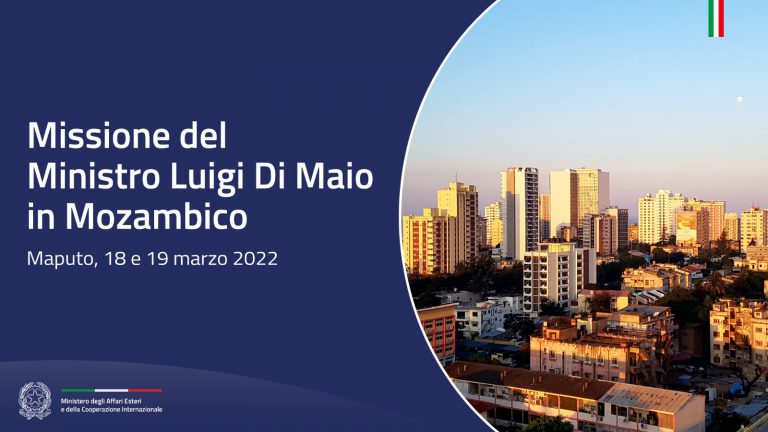Africa is one of Italian foreign policy’s “core business” concerns, to the point of being the central focus of two missions at the start of foreign minister Emma Bonino’s 2014 agenda. An Africa still strafed by bloody conflicts, but an Africa also bursting with growth opportunities. Just back from a mission to Ghana and Senegal, and about to leave for one to Sierra Leone and Ivory Coast from 12 to 15 January, the minister explains what lies behind this investment.
Why is Africa part of Italian foreign policy’s «core business» for 2014? Why Africa, with so much potential and yet so many serious unresolved conflicts? How will Africa be placed on Italy’s EU Presidency agenda?
“We have decided to put the spot light back on Africa for two main reasons. First, the continent is showing signs of progress that need to be followed and encouraged. In addition to massive economic growth, the number of stable and democratically governed African countries is rising, and their civil societies are having an increasingly decisive impact. There are persistent tensions, such as those of South Sudan and the Central African Republic, but there is hope that nations crippled by civil war in the past – Angola, Mozambique, Sierra Leone, Liberia, Ivory Coast, Rwanda, Chad and Uganda – will now be able to produce high rates of growth and offer major economic prospects. Secondly, Africans are asking for Italy’s greater participation in their development dynamics, and it is in our interests to seize these opportunities. Italy’s image in the countries I visited recently – Ghana and Senegal – is untainted by colonial prejudice and free of association with economic exploitation, and remains recognised and appreciated for the quality of the infrastructures built by our firms in the 1970s and 80s; and our missionaries and cooperation workers have dedicated years of excellent work in many African nations. It is on this foundation that – along with Deputy Minister Pistelli, who at year’s end was in Uganda, Kenya, Ethiopia and Djibouti, and will soon be visiting the two Sudans, Angola and Mozambique, and Under-Secretary Giro, who will soon visit Mozambique and Tanzania – we intend to revive Italy’s role in fostering growth in Africa, in full respect of the free choice of Africans within the framework of a deeper partnership with the European Union”.
There are still serious human and civil rights violations going on in Africa, but there are also signs of major progress in this area. How is Italy reading that ?
“The regular conduction of elections in delicate contexts such as Mali and Guinea, and earlier in Sierra Leone, Ghana and Togo, is proof of a steady democratisation process. The rate of secondary school attendance has risen to 48%, life expectancy has gone up by 10% and the infant mortality rate in many countries has plummeted. The role of women in the civil society has increased and is being encouraged; according to the Economist, the rate of girls’ primary school attendance rose from 84% to 93% between 1999 and 2010. Major progress has also been made in the crucial areas of institution-building and the rule of law, which I consider indispensable to ensuring the broader diffusion of fundamental freedoms and democratic governance. The cause of eliminating of inhuman and unacceptable practices, such as female genital mutilation, against which I have been battling for years, has also been energetically espoused by African countries themselves, with the support of the UN and Italy. But it’s also about opening up new frontiers, ending forced marriages for young women, and strengthening the role of female creativity and innovation in a very young population. I am convinced that African countries and their peoples are very much aware of the importance of triggering a virtuous cycle between democratic development and sustainable economic growth. For that reason we are proposing, above all, to support countries with strong and stable institutions where human and civil rights issues go hand in hand with governance and economic growth. It remains clear that Italy’s and Europe’s commitment will be to the further reinforcement of countries with a good track record in this sense but that are also willing to assist the more fragile ones on their journey toward democratic consolidation”.
Can you offer some examples?
“We are boosting cooperation with Senegal, a stable and democratic country, through a 3-year 45-million euro package. I will be in Freetown, Sierra Leone on 13 January to attend a conference on the abolition of the death penalty organised by the NGO “Hands Off Cain”. That country has made encouraging progress in its democratisation efforts following the bloody civil war that ended in 2002, and those efforts need to be supported and encouraged. I’ll be going on to Ivory Coast on 14 January, a country that has also made substantial progress on rebuilding since the end of the civil conflict in April 2011, and aims to regain its role as Western Africa’s financial centre. We intend to support the commitment of the Ivory Coast’s government and people to national reconciliation by strengthening bilateral and multilateral cooperation in consideration of its importance to regional stability”.
What concrete initiatives are proof of Italy’s intention to make Africa a priority ?
“These missions of mine are part and parcel of our renewed interest in Africa. On 30 December we launched the Italy-Africa Initiative, a mechanism by which to trigger dynamic reflection and an array of political, economic, social and cultural projects. Specific attention will be given to collaboration in the energy and agricultural sectors that are key to African countries’ future development, not least in view of their participation in the 2015 Milan EXPO. The Initiative is representative of our intention to be active in Africa’s progress and not just spectators, generating dialogue with those nations and actively involving their societies in their own growth dynamics. Various Italian ministries and governmental and non-governmental institutions are ready to make their qualified contribution to strengthening our ties with that continent. Finally, we have launched the reform of Law 49 on Cooperation Development in order to update the strategies and modalities of intervention in Africa’s poorest countries”.
But isn’t Africa at risk of becoming a new breeding ground for Jihad- and Qaeda-fed terrorism? Take the latest events in Nigeria, Central Africa, Sub-Saharan Africa, Libya, for example.
“I am well aware that instability in Libya and other countries along the southern Mediterranean shores is feeding North-South traffic of every sort, including the movement of extremists and terrorists. The danger is a real one, of which African countries are also aware and have asked for greater collaboration in the sector of intelligence. The phenomenon is complex and insidious, and must be confronted with a variety of instruments and strong international cooperation. Military stabilisation interventions in crisis areas, such as France’s recent operations in Mali and the Central African Republic, must be followed up with stabilisation initiatives that make it possible for the populations involved to entertain prospects for lasting development and economic growth. We are working bilaterally toward this, and intend to do so with great commitment also with our European partners once we assume the EU Presidency in July.






